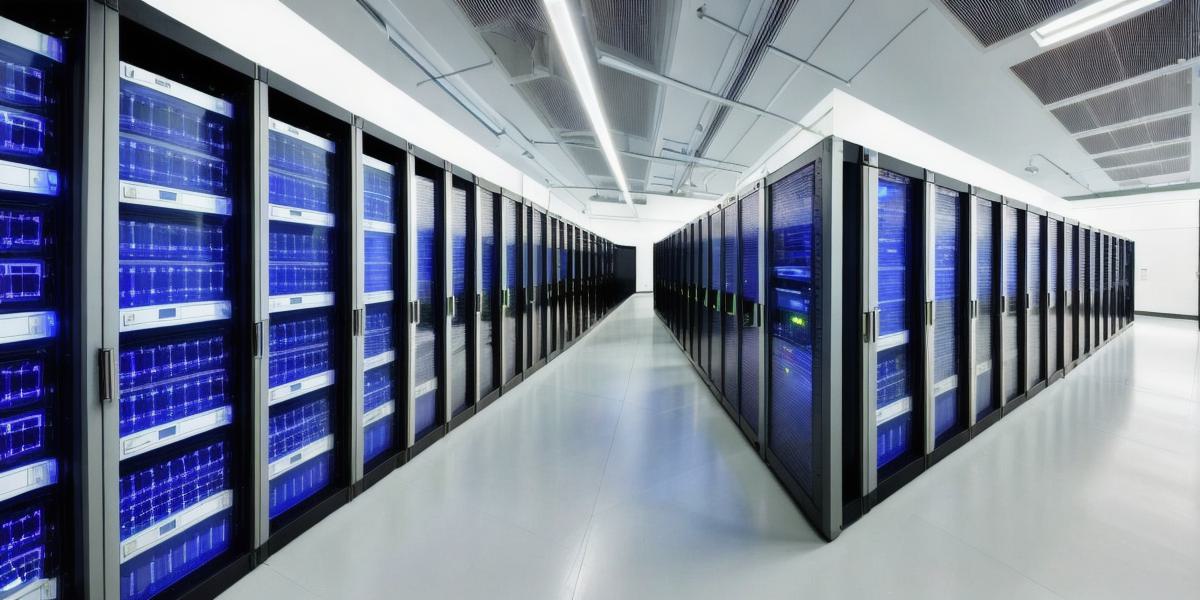Introduction
In today’s digital age, data centers have become essential infrastructure for businesses and organizations to store, process, and disseminate information. With the ever-increasing demand for data processing and storage capacity, data center operators are continuously seeking ways to increase efficiency while reducing costs. One promising solution is the adoption of 800g technology – a high-density cabling system designed to accommodate more data in less space. In this text, we will discuss the benefits of utilizing a data center with 800g technology and explore how it can help you maximize efficiency.
1. Reduced Cabling Requirements
One significant advantage of 800g technology is its ability to accommodate more bandwidth in fewer cables. Traditional cabling systems required numerous cables to support the same level of data transfer, resulting in increased installation costs and complex cabling infrastructure. By utilizing 800g technology, data centers can reduce their cabling requirements by up to 50%, leading to faster installation times, simplified cabling designs, and lower overall costs.
2. Increased Power Density
Another advantage of 800g technology is its ability to support increased power density. Traditional data center designs required significant distance between power and data cables to minimize the risk of electromagnetic interference (EMI). With 800g technology, however, power and data cables can be run parallel to each other, allowing for greater power densities within the same footprint. This is especially beneficial in high-performance computing environments where power requirements are significant.

3. Enhanced Cooling Efficiency
The reduced cabling requirements and increased power density offered by 800g technology also contribute to enhanced cooling efficiency in data centers. The less cabling required, the fewer obstacles there are for airflow within the data center – leading to better cooling performance and lower energy consumption. Furthermore, the ability to support increased power densities allows for more efficient use of available space, reducing the need for additional cooling capacity and associated costs.
4. Future-Proofing Your Data Center
As data processing and storage demands continue to grow, the ability to adapt and scale data center infrastructure becomes increasingly important. 800g technology provides a future-proof solution for data centers, offering a high-density cabling system that can accommodate increased bandwidth and power requirements as they evolve. By investing in 800g technology now, you can ensure your data center remains competitive and efficient in the long term.
Conclusion
In conclusion, the adoption of 800g technology in data centers offers numerous benefits, including reduced cabling requirements, increased power density, enhanced cooling efficiency, and future-proofing your infrastructure for evolving data processing and storage demands. By choosing a data center with 800g technology, you can maximize efficiency, reduce costs, and ensure your business remains competitive in today’s digital landscape.

FAQs
- What is 800g technology, and how does it differ from traditional cabling systems?
Answer: 800g technology is a high-density cabling system that can accommodate more bandwidth and power in fewer cables compared to traditional cabling systems. It offers numerous benefits such as reduced cabling requirements, increased power density, enhanced cooling efficiency, and future-proofing your infrastructure for evolving data processing and storage demands. - How does 800g technology impact the cost of running a data center?
Answer: By reducing cabling requirements and increasing power density, 800g technology can lead to lower overall costs in data centers through faster installation times, simplified cabling designs, and reduced energy consumption. Additionally, its future-proofing capabilities allow you to scale your infrastructure efficiently as data processing and storage demands evolve. - What industries or applications benefit most from 800g technology?
Answer: High-performance computing environments, such as those in the financial services, healthcare, and scientific research sectors, can significantly benefit from the increased bandwidth, power density, and cooling efficiency offered by 800g technology. Any organization with substantial data processing and storage requirements can potentially save on costs and improve efficiency through the adoption of this advanced cabling system.
